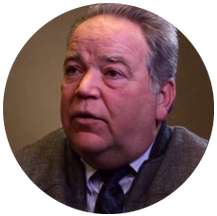Like high noon at the OK Corral, we’ve reached the high drama, high stakes shoot out in sports.
College and professional football games fill our TV screens Saturdays, Sundays, Mondays and Thursdays. The World Series has captured our collective imagination as two teams with winless records for a half-century or more battle it out on the bases. Soccer, hockey and basketball just launched their respective seasons.
And alongside the chicken wings, pizza, beer, jerseys and lucky socks, you also find gambling — and LOTS of it.
Right before the start of the 2015 NFL season, DraftKings and FanDuel, two of the largest fantasy sports betting websites, literally ran a television ad every 90 seconds. When the ad spending frenzy was at its height, the number of commercials aired by these two Goliaths nearly equaled the number of minutes in the day. (iSpot.tv)
They could afford it. ESPN reported that in 2015 Americans spent $95 billion – and 96% of that that would be bet illegally — on just NFL and college pigskin parades alone. In 2014, National Basketball Association Commissioner Adam Silver published an op-ed in the New York Times arguing that $400 billion in illegal wagers are placed every year.
And if Silver, along with all the major sports franchises and associations including the players’ unions, achieves his goal, the U.S. will legalize sports gambling.
For those addicted to gambling, more ads and more opportunities to play equates to even greater numbers of temptations and even more cultural smokescreens to camouflage and hide a disease that most often ruins their lives.
A recent ESPN examination of the issues quotes Michael K. Fagan, a former federal prosecutor and current adjunct professor at Washington University School of Law as saying that no good can come from legalization. “Anyone fairly and comprehensively evaluating the unbiased, independent academic, health care and economic evidence readily finds that it weighs in favor of continuing prohibitions on commercial sports gambling. Expanded and heavily marketed sports gambling significantly shifts the focus of fans from the athletic contest to the pursuit of personal profit.”
Dr. Christopher Hunt from the University of Sydney Gambling Treatment Clinic in Australia, says legalization led to the “gambilization” of sports. “All of a sudden, it was like you couldn’t talk about sports without making reference to what the odds were…” And he began seeing major increases in the number of sports bettors among his patients.
I know, I know. We all play in the office basketball pool during the Final Four countdown in March. Everybody knows somebody who devotedly follows their fantasy sports players week after week. It seems harmless and, for many people it is. But we would be placing about 54,000 people in Franklin County at greater risk. And for about 3,000 Franklin County residents, we would be feeding an active addiction. (2012 Ohio Department of Mental Health & Addiction Services Statewide Problem Gambling Survey).
We’ve learned with alcohol, tobacco and drugs that whenever we “normalize” addiction, whenever we send the impression that “everyone is doing it,” some people pay the price financially, emotionally, mentally and physically. And when you consider how many family members and loved ones also suffer when someone gambles too much, you realize that more than a half million of our Franklin County neighbors are at risk of, or are already coping with, someone’s chronic relapsing brain disease that also jeopardizes their own health and well-being.
Major fantasy sports betting operations argue that what they offer is a game of skill, not chance. Makes you wonder why they settled lawsuits filed by the New York Attorney General’s Office who charged that they “targeted users with a propensity for gambling and addiction.”
You can minimize, ignore and even call it by another name. But the realities of what will happen if we legalize sports gambling are sobering.
Who really wins?

